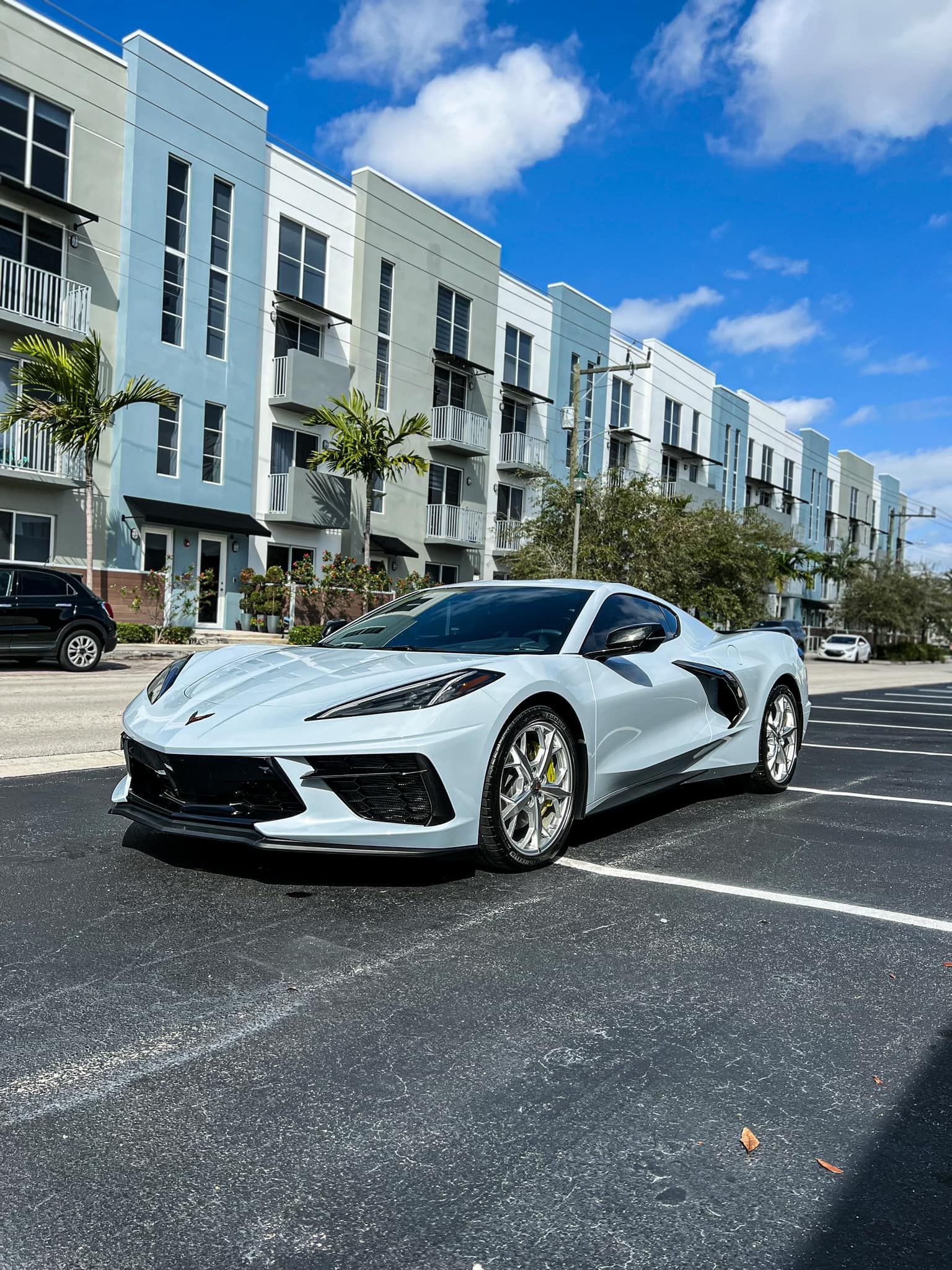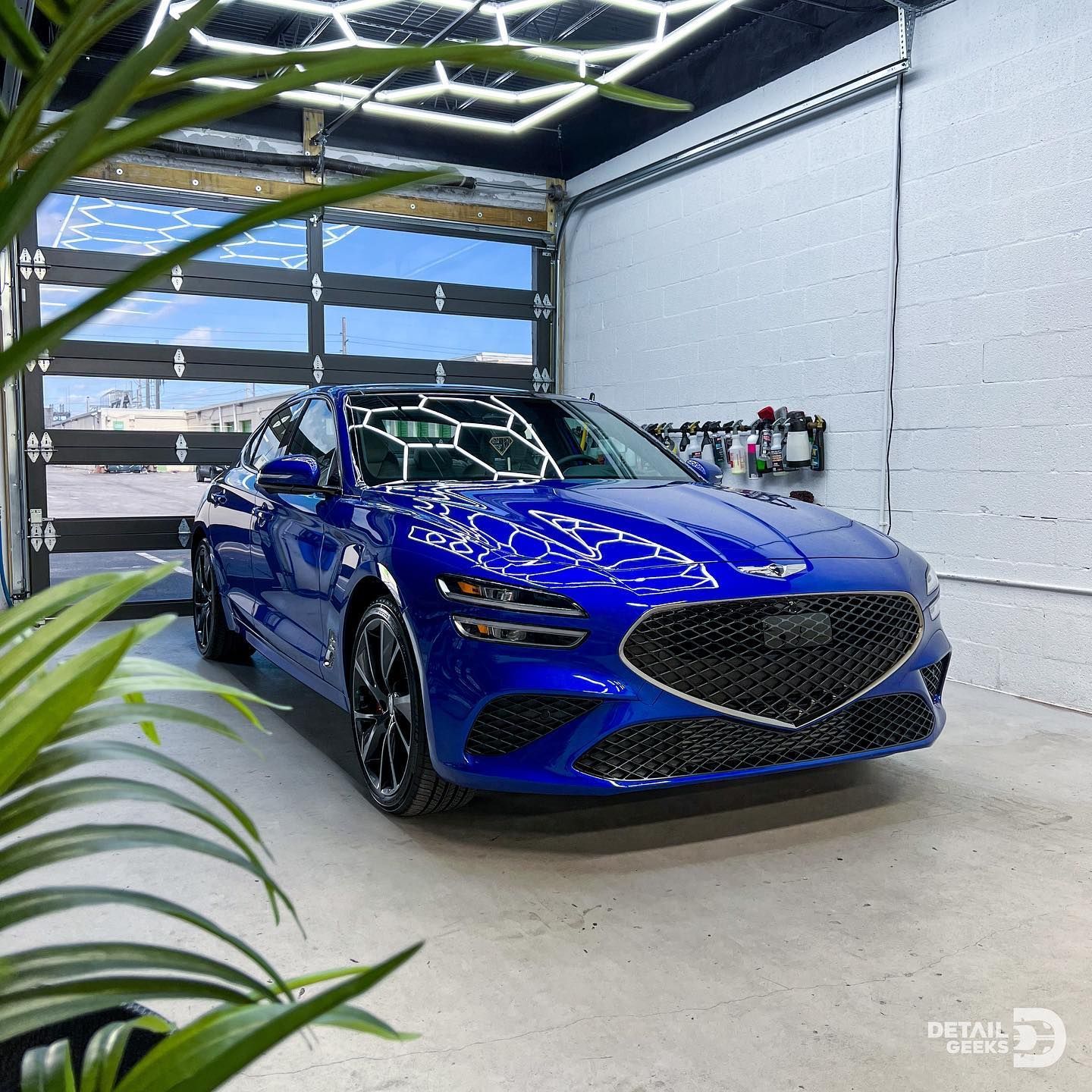Don't Let Road Debris Ruin Your Paint—Here's How PPF Helps
You're cruising down I-95 in Fort Lauderdale when suddenly—ping—a piece of gravel kicks up from the truck ahead and strikes your hood. That sickening sound every car owner dreads. In the time it takes to blink, your pristine paint now sports a chip that will cost hundreds to repair properly. This scenario plays out thousands of times daily across South Florida's busy highways, construction zones, and debris-laden roadways.
For Fort Lauderdale vehicle owners, road debris isn't just an occasional inconvenience—it's a constant threat that can transform a showroom-perfect finish into an expensive repair nightmare. Whether you're navigating the perpetual construction on I-595, dodging loose gravel on State Road 84, or simply dealing with the organic debris that falls from Florida's abundant vegetation, your vehicle's paint faces relentless assault every time you drive.
At Detail Geeks, we've seen the devastating effects road debris can have on vehicles throughout Fort Lauderdale, Sunrise, Lauderhill, and surrounding areas. From tiny stone chips that seem insignificant to major gouges from construction materials, road debris remains the number one threat to your vehicle's paint finish. We've witnessed luxury vehicles depreciate thousands of dollars due to accumulated road debris damage, and daily drivers require premature repainting from chronic chip accumulation.
The harsh reality is that traditional protection methods—wax, polish, and even
ceramic coatings—offer minimal defense against high-velocity road debris. These products excel at protecting against environmental contaminants and UV damage, but they're virtually powerless against the kinetic energy of flying stones, metal fragments, and construction debris. Fortunately,
Paint Protection Film (PPF) offers an invisible shield that transforms these potential disasters into minor inconveniences.
The Hidden Economics of Road Debris Damage
Before exploring how PPF protects your investment, let's examine what road debris actually costs Fort Lauderdale vehicle owners. The financial impact extends far beyond the obvious repair bills, creating a cascade of expenses that savvy car owners must consider.
Immediate Repair Costs: A single paint chip repair ranges from $150-$400, depending on size, location, and paint complexity. Luxury vehicles with specialized colors or multi-coat finishes can easily reach $600-$800 per chip. Multiple chips across your hood, bumper, or fenders can easily reach $1,500-$3,000 in professional repair costs when properly matched and blended.
Cumulative Damage Effects: More concerning is the snowball effect of accumulated damage. Vehicles exposed to road debris for just two years often require comprehensive paint correction costing $2,500-$5,000. What starts as minor chips evolves into corrosion, rust, and extensive bodywork requirements that exponentially increase repair complexity and costs.
Depreciation Acceleration: Road debris damage accelerates depreciation at an alarming rate. Vehicles with visible chip damage can lose 15-20% more value than pristine counterparts, translating to thousands of dollars in lost equity. For luxury vehicles, this depreciation often exceeds the entire cost of comprehensive PPF protection.
Insurance Implications: Multiple road debris claims can impact your insurance premiums and coverage eligibility. Some insurers consider frequent paint damage claims as indicators of high-risk driving patterns, potentially affecting your rates for years.
"We regularly see clients who've spent more repairing road debris damage than they would have invested in comprehensive PPF protection," explains Sean, owner of Detail Geeks. "The math is simple: prevention costs far less than repair, and the peace of mind is invaluable."
Understanding South Florida's Unique Road Debris Challenges
South Florida's driving environment creates a perfect storm of road debris threats that vehicle owners must navigate daily. Understanding these specific challenges helps appreciate why comprehensive protection is essential for maintaining your vehicle's value and appearance.
Construction Zone Proliferation: Fort Lauderdale's rapid development means encountering active construction zones weekly. These areas generate screws, nails, metal fragments, concrete chunks, and sharp-edged materials that create severe gouges requiring extensive bodywork beyond simple paint repair. The infamous I-95 expansion project alone has generated thousands of road debris claims over the past few years.
Hurricane Season Aftermath: Florida's annual hurricane seasons leave lasting impacts on road conditions. Storm debris including branches, building materials, and metal fragments can persist for months after major weather events, creating unexpected hazards for unsuspecting drivers.
Heavy Commercial Traffic: Major shipping routes through Fort Lauderdale ports mean constant exposure to commercial vehicles carrying loose materials. Dump trucks, flatbed trailers, and construction vehicles regularly shed debris that becomes projectiles for following traffic.
Coastal Environmental Factors: Proximity to the ocean introduces unique challenges including salt-laden sand particles and organic debris from coastal vegetation. These materials create persistent, low-level damage that accumulates over time into significant paint deterioration.
How Road Debris Attacks Your Paint
Understanding your enemy helps appreciate PPF's protective capabilities. Road debris comes in multiple forms, each presenting unique challenges that conventional protection methods cannot address:
High-Velocity Gravel: Small stones launched by vehicle tires create concentrated impact points that penetrate paint layers instantly. These projectiles can reach speeds exceeding 60 mph, generating enough force to chip through multiple paint layers and reach bare metal. The physics are unforgiving—a pea-sized stone traveling at highway speeds carries enough kinetic energy to create damage that requires professional repair.
Construction Materials: Screws, nails, metal fragments, and concrete chunks cause extensive gouges requiring body work beyond simple paint repair. These larger debris pieces often create damage patterns that affect multiple paint layers and may require panel replacement rather than simple touch-up work.
Organic Debris: Tree branches, pine cones, palm fronds, and seed pods may seem harmless but create scratches and scuff marks that accumulate over time. Florida's year-round growing season means constant exposure to falling vegetation that dulls your paint's finish and reduces resale value through thousands of micro-scratches.
Salt and Sand: Coastal proximity means airborne salt crystals and sand particles constantly bombard your vehicle, creating microscopic scratches that compound into visible damage. These abrasive particles work like sandpaper, gradually wearing away clear coat and exposing underlying paint layers to oxidation and fading.
Road Surface Materials: Tar, asphalt chunks, and road marking materials kicked up during resurfacing projects create sticky contaminants that bond with paint surfaces. These materials often require aggressive removal techniques that can damage paint if not handled properly.
Advanced PPF Technology: Beyond Basic Protection
Modern Paint Protection Film represents the culmination of decades of materials science advancement, specifically engineered to address road debris challenges that conventional protection methods cannot handle. Understanding this technology helps vehicle owners appreciate why PPF succeeds where other products fail.
Molecular Impact Dispersion: When road debris strikes PPF-protected surfaces, the film's advanced polymer structure disperses impact energy across a significantly wider area than the initial contact point. This energy distribution prevents concentrated damage that would otherwise penetrate paint layers, essentially spreading destructive force until it becomes harmless.
Multi-Layer Defense System: Premium PPF consists of multiple specialized layers, each serving specific protective functions. The top coat provides optical clarity and initial impact absorption, while intermediate layers offer elasticity and memory properties. The adhesive layer bonds permanently with your vehicle's surface without affecting original paint, creating a unified protective system.
Temperature-Activated Healing: The revolutionary self-healing capability responds to heat exposure by triggering molecular reorganization within the film structure. Florida's climate provides ideal conditions for this process, as ambient temperatures routinely reach levels that activate healing properties without requiring external heat sources.
Optical Engineering: Advanced PPF maintains complete transparency while providing protection, using refractive index matching that eliminates visual distortion or color alteration. This optical engineering ensures your vehicle's appearance remains unchanged while gaining superior protection capabilities. The result is protection technology that reduces paint damage risk by up to 99%, transforming potentially expensive repairs into simple film replacement when necessary—though most road debris impacts leave no trace on quality PPF.
Strategic PPF Application for Maximum Road Debris Protection
Not all vehicle surfaces face equal road debris exposure. At Detail Geeks, we focus protection on high-impact areas where debris strikes most frequently, using data-driven analysis to optimize coverage and cost-effectiveness:
Front Bumper and Grille: These surfaces receive direct impact from road debris, requiring full coverage for optimal protection. The bumper's leading edge experiences the highest velocity impacts, making comprehensive protection essential for preventing costly repairs.
Hood Coverage Strategies: The large horizontal surface catches debris kicked up by other vehicles, making comprehensive hood protection essential. We typically recommend full hood coverage for vehicles regularly traveling highways, while partial coverage may suffice for primarily city driving.
Fenders and Wheel Wells: These areas face constant bombardment from tire-thrown debris, requiring careful attention to coverage edges and transitions. Quarter panels behind wheel wells also benefit from protection, as debris often ricochets from wheel areas to strike adjacent panels.
Headlights and Fog Lights: Expensive lighting components benefit enormously from PPF protection, preventing costly replacements from stone chips. Modern LED and HID lighting systems can cost $800-$2,000 to replace, making protection a smart investment.
Rocker Panels and Door Edges: Lower vehicle sections catch debris from adjacent lanes, requiring protection to prevent long-term damage accumulation. These areas often suffer overlooked damage that becomes expensive to repair during routine maintenance.
Custom Coverage Solutions: For vehicles with unique exposure patterns—such as work trucks or recreational vehicles—we develop custom protection strategies that address specific road debris threats while optimizing budget allocation.
Professional Installation: The Detail Geeks Advantage
Road debris protection depends entirely on proper PPF installation. Our meticulous process ensures optimal coverage and adhesion:
Precision Coverage Mapping
Using computer-aided design templates specific to your vehicle, we identify every surface vulnerable to road debris impact. This technology-driven approach ensures complete protection without gaps where debris could reach your paint.
Advanced Application Techniques
Our installation process combines artistry with technical precision. We use professional-grade slip solutions and specialized tools to achieve perfect adhesion while eliminating air bubbles that could compromise protection. Heat activation bonds the film permanently while activating self-healing properties.
Quality Assurance Testing
Every installation concludes with comprehensive quality inspection, focusing specifically on high-impact areas where road debris protection is most critical. We test edge adhesion, examine coverage completeness, and verify optimal film performance.
Real-World Protection Results and Client Success Stories
Detail Geeks clients consistently report dramatic reductions in road debris damage after PPF installation, with quantifiable results that validate the investment decision. Our client database reveals compelling protection statistics that demonstrate PPF's effectiveness in real-world conditions.
Highway Commuter Results: Vehicles traveling frequently on construction-heavy routes like I-595 and US-1 show virtually no paint damage after years of exposure. One client who commutes daily from Coral Ridge to downtown Miami reported zero road debris repairs in three years post-PPF installation, compared to $2,400 in annual repair costs previously.
Construction Industry Vehicles: Commercial clients whose vehicles regularly encounter job site debris report 95% reduction in paint damage claims. A local contractor saved over $8,000 in fleet paint repairs during the first year after PPF installation on high-exposure vehicles.
Luxury Vehicle Preservation: High-end vehicle owners consistently maintain showroom appearance despite daily driving. A Lamborghini owner recently celebrated five years of pristine paint condition despite regular track events and spirited highway driving through construction zones.
Financial Impact Documentation: Clients typically save $500-$1,500 annually in road debris repair costs, making PPF installation cost-effective within the first year for frequent drivers. Insurance claims related to road debris damage decrease by over 90% among protected vehicles in our client base.
The evidence is overwhelming: properly installed PPF transforms road debris from a costly threat into a manageable inconvenience, preserving both vehicle appearance and owner peace of mind.
Maximizing Road Debris Protection
While PPF provides exceptional protection, following proper care protocols ensures maximum effectiveness against road debris:
Regular Cleaning: Remove accumulated debris promptly to prevent embedding in the film surface. Use pH-neutral shampoos and microfiber towels for gentle cleaning that preserves film integrity.
Impact Inspection: After highway driving or construction zone exposure, inspect PPF-protected areas for any signs of impact or lifting edges. Early detection prevents minor issues from compromising protection.
Professional Maintenance: Annual inspections at Detail Geeks ensure your PPF continues providing optimal road debris protection. We check adhesion, clean difficult-to-reach areas, and address any concerns before they affect performance.
Investment Protection That Pays for Itself
PPF installation represents smart financial planning for any vehicle regularly exposed to road debris. The initial investment of $2,000-$10,000 (depending on coverage area) typically pays for itself within 1-2 years through avoided repair costs. More importantly, vehicles with PPF retain up to 10% more value at resale, as buyers recognize the benefits of pristine, chip-free paint.
Don't Wait for the Next Impact
Every day without PPF protection is another opportunity for road debris to damage your paint permanently. South Florida's busy highways, ongoing construction, and coastal environment create constant threats that traditional waxes and coatings simply cannot address.
Transform your vehicle's protection today with professional PPF installation from Detail Geeks. Our owner-operated approach ensures exceptional attention to detail that larger shops cannot match, while our comprehensive education and ongoing support provide peace of mind throughout your film's lifetime.
Ready to shield your vehicle from road debris damage?
Contact Detail Geeks today to schedule your PPF consultation. Our limited weekly availability ensures exclusive attention to each client's unique protection needs.
Call Detail Geeks at (305) 896-2430 to begin your journey toward superior road debris protection.
Detail Geeks provides premium automotive protection services for clients in Fort Lauderdale, Sunrise, Lauderhill, Dania Beach, Wilton Manors, Coral Ridge, Plantation, Davie, and Lauderdale Lakes.
Your vehicle deserves protection from road debris. Choose PPF. Choose Detail Geeks.
Detail Geeks Blog






